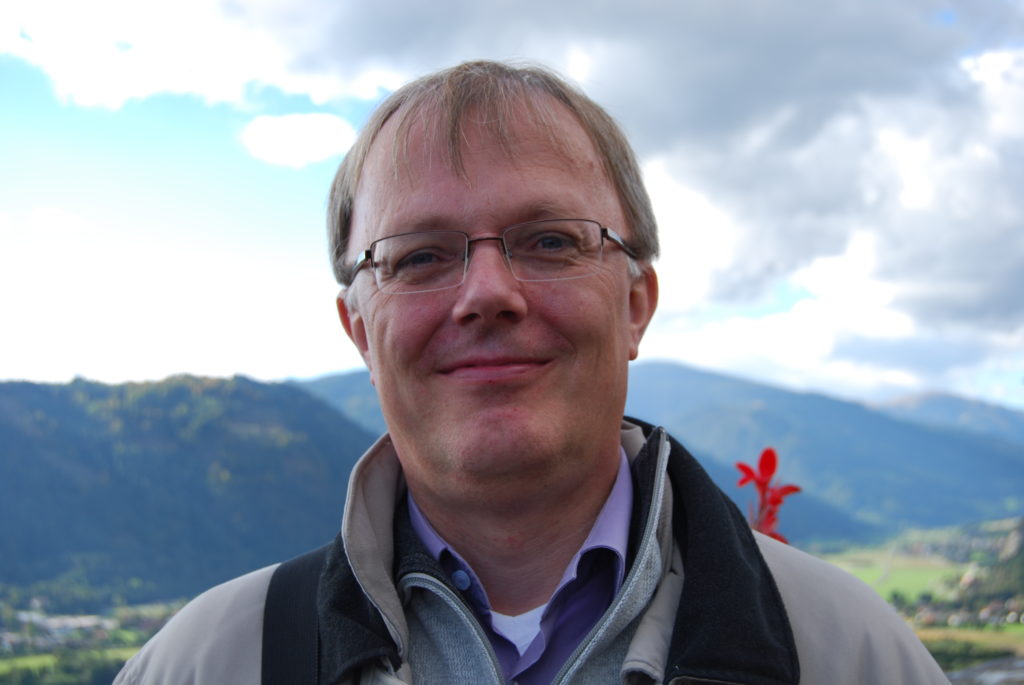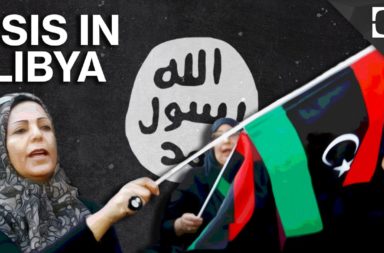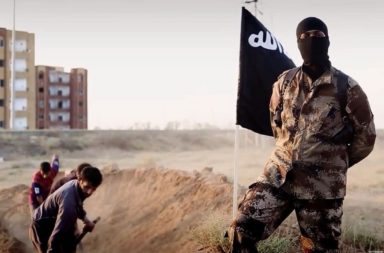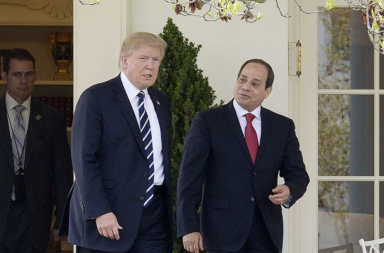GLOBALO asked famous Dr Rüdiger Lohlker (pictured below) from the VORTEX Program on what is needed to contain and reduce radical Islamic terror.
He and his program fight ISIS and extremism by providing a peaceful, alternative religious narrative.
He is a professor at the Institute for Oriental, Philological and Cultural Sciences, at the University of Vienna, in Austria.

GLOBALO: Professor Lohlker, could you please describe your VORTEX Program and what you would like to achieve?
Prof. Dr Rüdiger Lohlker: The Vienna Observatory of applied Research on Terrorism and Extremism (VORTEX) is a unique attempt to combine Muslim activism and scholarly heritage and European academic expertise to develop and apply resources and activities against extremist Islam. VORTEX is based on the Islamic expertise of Nahdlatul Ulama (NU) scholars and supported by the expertise of a research group working at Vienna University doing research on Jihadism online for many years now and having a thorough understanding of the importance of religion in this kind of extremism. So academia is providing knowledge for analyzing extremist online communication and understanding the structure of the theology of extremists to identify the issues to be criticized by NU scholars based on their knowledge of Islamic scholarship and of course of Arabic, which is a key language not only for Islam but also for Sunni extremists such the self-appointed “Islamic State” and others.
On a second level VORTEX provides material for youth workers and others in European cities doing prevention work to deepen their understanding of the religious issues at stake. VORTEX is trying to expand to the Muslim communities in Europe (and hopefully in other continents) by organizing Spring/Summer Schools for young Muslims to develop their own version of a non-extremist alternative Islam. These schools will include local activists and scholar, but scholars from Indonesia, too, who can provide other perspectives than the usual one currently available in Europe and the experience of an alternative Islam existing and deeply embedded in a modern state. This aspect of living an alternative experience is crucial for the idea of VORTEX.
GLOBALO: One of your partners is from Indonesia. Could you describe them and the importance of moderate Islamic organization?
Prof. Dr Rüdiger Lohlker: Direct cooperation partner is the LibForAll-Foundation, facilitating the contact to the Nahdlatul Ulama (NU) in Indonesia, esp., its spiritual wing. NU is the largest Muslim organization worldwide (est. 60 Mio. members). Since the 1980s it has been the driving force behind the transformation process in Indonesia from dictatorship to democracy. NU is promoting what is called islam nusantara, roughly translated as Southeast Asian Islam. Islam nusantara means for NU an Islam that is culturally embedded and spread peacefully, not destroying local culture but building upon it (so, the cultures of Europe would be the basis of European Islam adding new dimensions to Islam). To summarize it this understanding and practice of Islam is inclusive (not excluding any human being, Muslim or non-Muslim, for not following their understanding of Islam), it is tolerant (not only tolerating the existence of others but fully accepting them), pluralistic (amongst Muslims and non-Muslims following the national Motto of Indonesia: ‘Unity in Diversity’), supporting democracy (demonstrated by the positive role of NU in the Indonesia process of transition to democracy), accepting the nation state and rejecting the idea of a global caliphate, and, firmly, rejecting the idea of an Islamic state.
NU claims to be successfully fighting for centuries extremist Islam, e. g., the Padri movement in the beginning of the 19th century, a reincarnation of Wahhabi Islam in Southeast Asia, or the takeover of Mecca by the Saudis in the 20th century, an immediate reason for the establishment of NU.
GLOBALO: How important is the religion? How can the true peaceful Islam be promoted?
Prof. Dr Rüdiger Lohlker: The process of radicalization usually starts with an individual crisis inciting a process of searching for solutions. One of the solutions is extremist Islam presented at a very basic level and in a language that is accessible even for less educated people. It is offering a way to build a new identity and by creating this identity offering a true – but indeed: fake – solution for the crisis. The Islamic legitimacy offered by extremist Islam provides additional security by anchoring the new identity in superhuman truth immunizing the ‘converts’ to extremist Islam against critique.
Religion is the fuel to run this machinery of drawing people into extremism.
The religious immunization and the search process leading to extremism can be broken by creating an alternative religious view avoiding the pitfalls of trying to beat the extremists in a discursive space they have defined: putting one peaceful verse from the Qur’an against a violent one, one Hadith against another. As in every religious tradition there is – unfortunately – a lot of material that can be used for a justification of violence! discrimination or hatred. Only the creation of a new religious space supporting peace and pluralism will be able to contain a conceptualization of religion in terms of violence (as ISIS is doing just now). This new space has to be build on the expertise of Muslim scholars with a deep understanding of Islamic tradition who support this new understanding of Islam. The NU – in a sense much like ISIS – offers a coherent interpretation of religious sources and provides a coherent Muslim identity: one of promoting tolerance and unity in diversity versus the ISIS offered model of theological sanctioned hatred and discrimination.
GLOBALO: How could Twitter, Facebook and the internet community reduce radical terror propaganda?
Prof. Dr Rüdiger Lohlker: It is a long experience of failure to put Jihadi content and activity offline since 2001. It is still important to take as many accounts, profiles etc. as possible down, but it is much more important to encourage open competition online.
Internet companies could set up programs of workshops or internships for young people producing state of the art anti-extremist contents, esp., videos. The usual counter-narrative efforts are amateurish, not appealing to people raised and living in nowadays youth culture. These workshops and internships have to be focussed in a given region: Northwestern Europe, Southern Europe, East Europe, Balkans, North America, Latin America, Caribbean, Arab World, Turkey, Central Asia, Iran, Afghanistan, Bangla Desh, India, East Asia, South East Asia (esp., Philippines and Indonesia).
GLOBALO: Any ideas to contain/reduce the number of converts or lone wolves?
Prof. Dr Rüdiger Lohlker: Lone wolf terrorists are activated by Jihadi communicative leadership exercised esp., online. This kind of communication is not operating based on a chain of command and control. It is providing the – very general – ideas that will incite lone wolves to act, e. g.: the Muslims are oppressed worldwide – they are in need of help – the only effective way of helping is using violence... Enemies may be identified, e. g., ‘apostates’, Muslims not supporting the Jihadi cause are a legitimately a target for everybody adhering to the Jihadi cause; Shiites are defined as unbelievers and as such targets to be attacked etc.
A thorough analysis of this communication will help to identify the problematic ideas that have to be countered theologically and practically, opening channels for activity for young people to help and providing for a lived alternative of a tolerant Islam. There has to be more than communication, action is needed for younger people.
To reduce the number of potential lone wolves will need a process of breaking the dominance of extremist discourses circulating unchallenged and developing a practical perspective for younger and older people to get involved.
GLOBALO: What would be your best ideas to contain terror ‘in the name of Allah’?
Prof. Dr Rüdiger Lohlker: At a soft power level there is on the one hand social work (outside the scope of our program, but we are cooperating with youth workers and others) trying to stop people, esp., younger people, before joining the subcultures of extremist Islam, be it Jihadi, Salafi/Wahhabi, political Islamic. On the other hand a well thought thorough alternative view has to be provided for and presented online in a multilingual form to make it available to everybody who is looking for an islamically based worldview that is formulated by Islamic scholars with a high religious credibility. In short: Opening up a competition for a tolerant, pluralistic and inclusive view of Islam against other views.
This space is currently solely occupied by ISIS.
Trying to declare extremist Islam simply as non-Islamic is understandable, but will easily be countered by the extremists who will come up with other proof texts demonstrating that the people who criticize them are not Islamic at all. For an effective critique it is necessary to leave the battlefield defined by the extremists, i. e., a discussion about the ‘right’ texts, to the spiritual values of religion. A good example may be the spiritual wing of the Nahdlatul Ulama doing effective anti-extremist work based on their mystical understanding of Islam.
GLOBALO: How much money is invested, needs to be invested in the soft factors?
Prof. Dr Rüdiger Lohlker: Not so much is needed.
Our own program started with a grant of only € 150.000 from the Austrian Ministry of the Interior for one year.
To keep the process described above running year we only need € 500.000 to cover the following activities in the second year.
This includes ongoing research on the research of extremist Islamic online (€ 40.000). The production of material by scholars of the Nahdlatul Ulama and providing training material for anti-extremist work, facilitated by LibForAll (€ 150.000). Producing publications (written brochures and other texts € 20.000). Spring/summer schools in European cities (and other countries if possible), including travel expenses for trainers from Indonesia (i.e., Nahdlatul Ulama; € 100.000; co-sponsoring by the cities the schools are held in intended to increase commitment of the city administrations. Producing videos (€ 50.000). Translating videos, texts (€ 60.000). Travel expenses (€ 20.000.) Administration (€ 10.000). And overhead, since resources of Vienna University are used 10 percent (€ 45.000).




